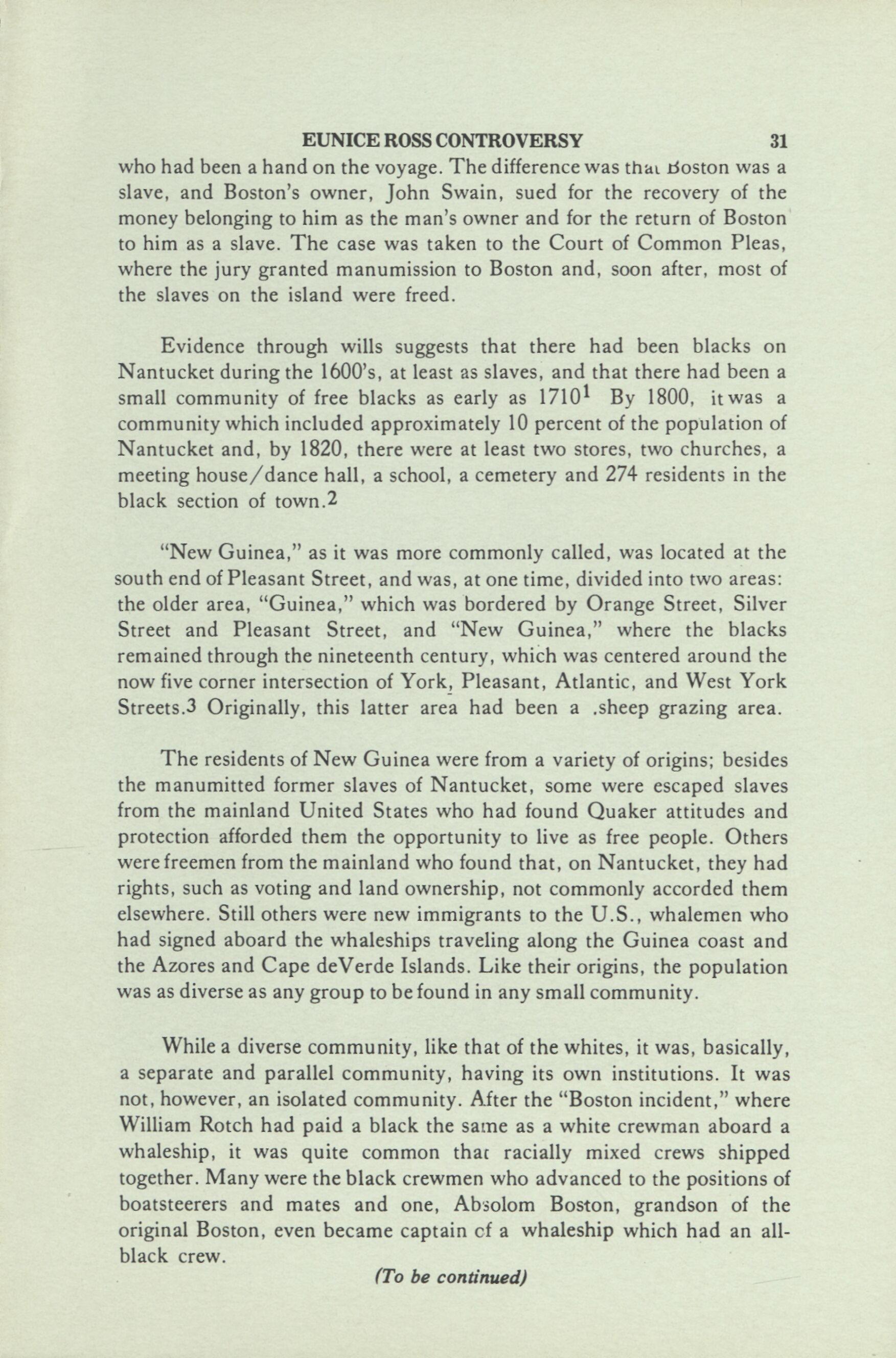
2 minute read
by Kristi Kraemer
Captain Absalom Boston, of Nantucket, first black shipmaster.
EUNICE ROSS CONTROVERSY 31
who had been a hand on the voyage. The difference was thai Boston was a slave, and Boston's owner, John Swain, sued for the recovery of the money belonging to him as the man's owner and for the return of Boston to him as a slave. The case was taken to the Court of Common Pleas, where the jury granted manumission to Boston and, soon after, most of the slaves on the island were freed.
Evidence through wills suggests that there had been blacks on Nantucket during the 1600's, at least as slaves, and that there had been a small community of free blacks as early as 17101 By 1800, itwas a community which included approximately 10 percent of the population of Nantucket and, by 1820, there were at least two stores, two churches, a meeting house/dance hall, a school, a cemetery and 274 residents in the black section of town.2
"New Guinea," as it was more commonly called, was located at the south end of Pleasant Street, and was, at one time, divided into two areas: the older area, "Guinea," which was bordered by Orange Street, Silver Street and Pleasant Street, and "New Guinea," where the blacks remained through the nineteenth century, which was centered around the now five corner intersection of York, Pleasant, Atlantic, and West York Streets.3 Originally, this latter area had been a .sheep grazing area.

The residents of New Guinea were from a variety of origins; besides the manumitted former slaves of Nantucket, some were escaped slaves from the mainland United States who had found Quaker attitudes and protection afforded them the opportunity to live as free people. Others were freemen from the mainland who found that, on Nantucket, they had rights, such as voting and land ownership, not commonly accorded them elsewhere. Still others were new immigrants to the U.S., whalemen who had signed aboard the whaleships traveling along the Guinea coast and the Azores and Cape deVerde Islands. Like their origins, the population was as diverse as any group to be found in any small community.
While a diverse community, like that of the whites, it was, basically, a separate and parallel community, having its own institutions. It was not, however, an isolated community. After the "Boston incident," where William Rotch had paid a black the same as a white crewman aboard a whaleship, it was quite common that racially mixed crews shipped together. Many were the black crewmen who advanced to the positions of boatsteerers and mates and one, Absolom Boston, grandson of the original Boston, even became captain of a whaleship which had an allblack crew.
Old House on Quince Street








